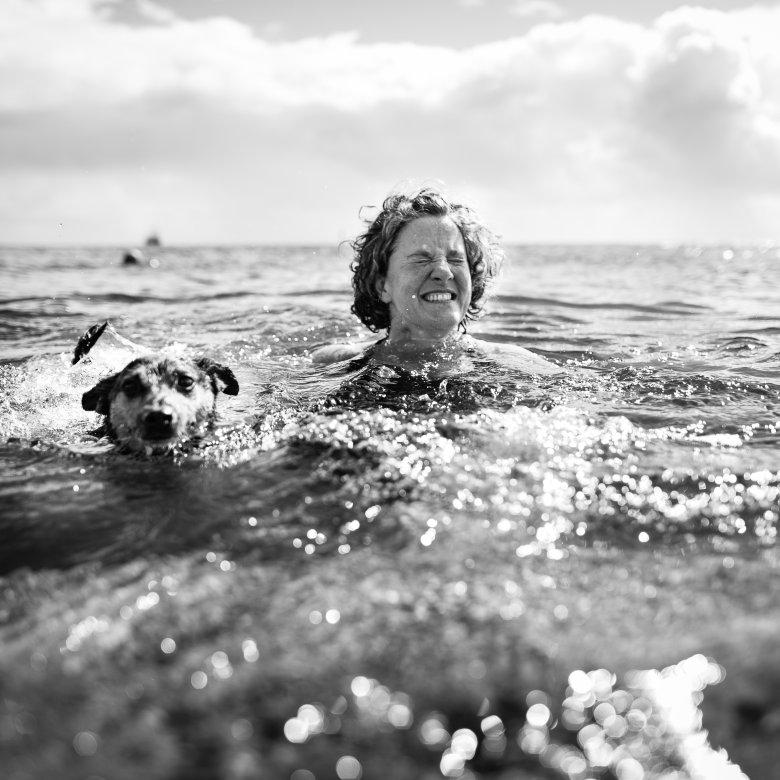Award-winning filmmaker Jane Pugh on the ‘storytelling impulse’
08 November 2023

School of Film & Television lecturer Jane Pugh is an award-winning screen and stage writer. In this interview, she shares her passion for storytelling, the short film format and helping the next generation find their voice.
For Jane Pugh, there are few burdens greater than that of an untold story. As a screen and stage writer, her ability to tell powerful stories has resonated with many and has earned her multiple awards, including an Oscar for Best Student Drama. As a tutor and facilitator, Jane leads writing workshops for people across the Southwest, working with partners including the Minack Theatre and the National Trust. It is this passion for helping others find their voices that brought her to Falmouth, where she is an online tutor on MA Film & Television (Online) as well as teaching screenwriting and narrative structure on MA Professional Writing and BA(Hons) English & Creative Writing. We chatted to her about her love of the short film format and why she relishes supporting the next generation of film and television makers.
What first got you interested in filmmaking?
I grew up in the northwest of England and spent hours watching television and films, so I developed a massive affinity with the moving image from a young age. Something that particularly struck me was the BBC drama Pennies from Heaven, written by Dennis Potter, who was held in extremely high regard at the time. If I mentioned it to school friends however, they hadn't heard it and weren't interested in it at all. That gave me a warm feeling inside because I ‘got’ it; I understood what Dennis Potter was exploring and it became my own secret passion.
Why do you enjoy helping others to share their stories?
Maya Angelou once said, “there is no greater agony than bearing an untold story” and I couldn't agree more with that. As my friends and family would vouch, I'm a very verbal person and I love stories and drama – as much in life as on screen! My late father was Italian, so maybe it's something about sharing stories around a kitchen table, and expressing yourself, that is part of me.
Shoot films on your phone, take photos and post them online, keep on creating. Doing so will ensure you remain experimental, playful and able to pick yourself up when something doesn't work out
Even though I do have my own writing practice, I spend far more time working with people to find their stories and helping them to express themselves. Perhaps it's just because I'm a curious, nosy person, but I never tire of it, and when students come to me and tell me they’ve got something they want to share on screen, I’m all ears.
You have written and produced 27 short films, one of which won an Oscar. Which are you most proud of, and why?
It's the always the next one. That might sound corny but it's the truth; it's not what I've done, it's what I'm about to do. I really love the short film format, and I'm currently making a new short – although I think it'll take far longer to make this short film than Ridley Scott has spent making Napoleon! I would be a poet if I could write poetry, and so to me, the short film is akin to poetry. I love the ability to say a lot with a little, and in my opinion that is absolutely central to the ability to tell stories with the moving image. Trying to achieve that is endlessly thrilling to me.
What aspect of teaching on Falmouth’s online master's in film & television do you most enjoy?
The course brings together students from all over the world, and so in the morning I could be discussing a feature script with a student in Panama, and in the afternoon, I could be talking to a student who's developing a documentary in Cape Town, South Africa. So, from the comfort of my little office at home with my dog curled up at my feet, I get to whizz around the world. The whole experience is genuinely fascinating.
When students come to me and tell me they’ve got something they want to share on screen, I’m all ears
What is the most surprising thing you have discovered while teaching on the online master’s?
The students work incredibly hard and really respect each other's differences. Their lived experiences are so varied, yet they find commonality and form creative relationships, and I think that happens because they're studying online; they have unique opportunities to build relationships and learn together.
What advice would you give to aspiring filmmakers?
I have friends working across many areas of the screen industries and they all answer this question in the same way: keep making work. Shoot films on your phone, take photos and post them online, keep on creating. Doing so will ensure you remain experimental, playful and able to pick yourself up when something doesn't work out. And crucially, it will help you on the journey towards discovering your voice as a filmmaker.